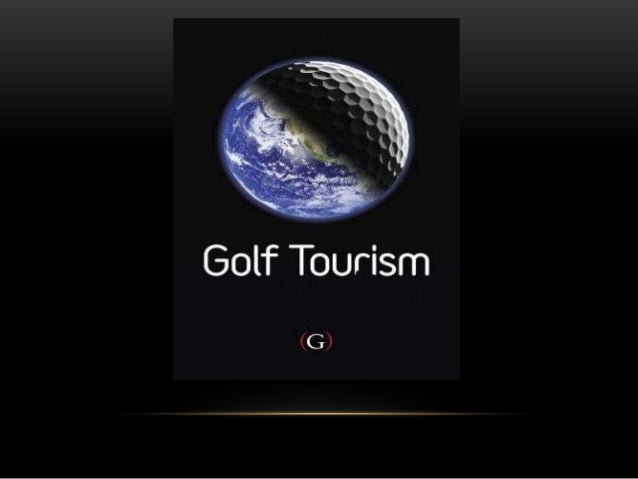
By Dela Ahiawor
Many international golfers, contemplating holidays in exotic golfing destinations, in all probability would give Ghana a miss. In view of, the fact that, a catalogue of the best golf territories in Africa, would certainly exclude Ghana. Noticeably, due to the dearth of ‘Export Ready’ golf courses. (Courses appropriate for international golf travelers)
On the contrary, Africa as a whole is fast becoming an attractive destination for international golfers, with a total of 828 courses in 50 countries. And an estimated half a million (0.5m) regular golfers, with an almost fanatical devotion to the ‘club and ball’ sport on the continent. As a result, any initiative to help build or touch up existing golf infrastructure to match up to internationally accepted standards, with the aim of boosting the image of the sport locally and globally, will naturally have great potential for the tourism sub-sector in Ghana.
A New Tee
A case in point is the newly refurbished $3million internationally recognized and goodly standard (export ready) 18- hole golf course at the Achimota Golf Club, by courtesy of Tullow Ghana Limited. Admittedly, this Corporate Social Responsibility (CSR) gesture by the Oil Exploration Firm, has positioned Ghanawell on a ‘new tee’in the bid to get in on the act of attracting professional and affluent golfers worldwide, who spend more than the average leisure tourist.
As a matter of fact, golf is ranked among the five most popular sporting activities on earth. And there are over 50 million dab hand with a golf club around the world, out of this, 70% have their eyes peeled for new golfing hot spots, as reported by the International Association of Golf Tour operators (IAGTO). Now with the right product (the new world class 18-hole golf course): Ghana can be promoted as a nascent golf destination.
Golf is Gold
In fact, golf tourism is a potential ‘gold-mine’ currently on the rise in developing countries. It’s a significant sports tourism activity that has grown into a valuable tourism offering that tends to attract largely gold-card tourists (high spenders).
With expenditure incurred by international golfers ranging from: admission fees for golf tournaments, green fees (cost to play a round of golf), club hire, driving range usage, purchase of equipment, golf lessons, to name but a few.
Furthermore, tourism respecting golf is an essential and a highly lucrative aspect of the overall tourism business globally. Earnings exceed that of other professional spectator sport like: soccer, basketball, baseball and hockey.
It’s worth over 50 billion Euros a year in Europe, the Middle East and Africa (EMA) region, according to the KPMG Golf Advisory Practice. On the whole, golf is capable of driving huge investments into resort development, job creation, as well as generating substantial economic growth.
Undoubtedly, golf is a very seductive sport, in that followers, mainly in the high net worth bracket, including privileged corporate honchos and individuals, even nourish a wish to own second homes near golf resorts in far-flung corners of the globe, including Africa.
The laundry list of genes that ensue are: increased local property values, the gravitation of foreign firms in the region, tax benefits, increased job and income benefits, networking opportunities and also health benefits, etc.. In light of all the foregoing plus points, it stands to reason that golf tourism is genuinely a whole new ball game, that need to be seriously explored.
But the mandate to act rests entirely with the Ghana Golf Association (GGA), the National Sports Authority (NSA), the Golf Fraternity, the Ghana Tourism Authority (GTA) and particularly the Ministry of Tourism, Culture and Creative Arts (MOTCCA): the agency responsible for developing and promoting tourism and related activities.
The Kiss of Life
Moreover, the tourism sub-sector in Ghana continues to be the fourth exchange earner, with an increased receipt of ($1.9 billion) as of last year. But if the Ministry of Tourism’s aim is to see this index go a notch or two up in the near future, then priming the pump for sports (golf) tourism is of the essence. Fact is, sports tourism globally is renowned for delivering the kiss of life to tourism industries on their last legs.
Again, travelling motivated by sporting events and activities has become a fast growing tourism sector and also remains a key aspect of the global travel and tourism industry; valued at a ballpark figure of $ 600 billion.
The business of sports tourism is also renowned for spawning huge revenue streams through: urban infrastructure development, enhancing destinations, attraction of Foreign Direct Investments (FDI) and massive employment opportunities.
For this reason, the need thus arises to invest more in golf infrastructure to help promote sports (golf) tourism to enable the tourism sector rake in the desired foreign exchange in the years ahead.
But the reality is that, with only one world class golf course, there is still a long way to go before Ghana joins the league of best golf destinations, even in Africa.Be that as it may, the future still looks very good for golf, with regards to the positive initiative to invest in sports (golf) infrastructure in Ghana, by Tullow Ghana Ltd. To this end, one can only hope that other corporate entities follow suit.
Marketing is the Name of the Game
With this expectation in mind, the tourism ministry, need to position itself four-square in the bid to develop and promote golf as a unique sports tourism product to potential visitors in the subsequent years.Considering,the growing number of international arrivals in Ghana each year. And precisely so, with the number of arrivals nearing the one million mark at:(993,600) the previous year, from (903,300) in 2012.
In addition, it’s also true that the tourism sector has helped to shore up Ghana’s economy by exploring several tourism offerings since its inception in 1993. So, with the economy currently in a tailspin, it’s just prudent to turn to golf to help drive tourism growth, regarding its substantial earnings.
Honestly, the tourism sub-sector must broaden its tourism offering beyond culture and heritage, to include Golf. And be treated as an important tourism diversification offering with an enduring strategy to market it. Since most international golf tourists upon arrival in Ghana tend to combine sports (golf) with the traditional culture and heritage tours.
The onus thus falls on the government to boost the tourism budget. To enable the main implementing agency of government policy on tourism, the Ghana Tourism Authority (GTA), in concert with the Ministry of Tourism, Culture and Creative Arts (MOTCCA) to project Ghana as a new golf destination of choice on the continent through the international media.
In line with the recent, move by the (GTA) and the (MOTCCA) to engage Cable News Network, CNN) to help position Ghana on the world stage; as well as the global tourism circuit.
Furthermore, the Ghana Golf Association(GGA): the direct custodian, of golf in Ghana, must be given the necessary financial muscle to further grow and promote the sport on the domestic scene as contained in its mandate.
Destination marketing is key with regards to golf tourism, so the various stakeholders must endeavour to continuously keep tabs on the needs and expectations of targeted tourists and developments through more hands-on strategies.
Consequently, the golf fraternity must display considerable enterprise and flair to help galvanize into activity the ‘club and ball’ sport for one and all in Ghana.
Golf Spelt Backwards is ‘Flog’
However, the flip-side to developing golf is that, it has adverse impacts. Genuinely, some of the criticisms levelled against golf, by the Global Anti-Golf Movement states that :
(a) The ‘golf green’ poses many environmental problems which include: decimation of biodiversity, fresh water shortage and chemical contamination of the soil, underground water, surface water, the surrounding air; which leads to health challenges.
(b) A greater part of the earnings from golf courses and golf tourism is repatriated to foreign lands.
(c) Golf abuses human rights; it displaces local communities, depriving them of water and other vital resources.But seemingly, in line with the aforementioned accusations, golf spelt backwards is ‘flog’: to wit, we are in for a severe flogging as a nation, if we fail to invest in golf courses and golf tourism without committing to the principle of sustainability or sustainable development.
Accordingly, the International Golf Federation (IGF): gives great credence to sustainability as “a core priority, optimizing the playing quality of the golf course in harmony with the conservation of its natural environment under economically sound and socially responsible management.”
Making inferences from the (IGF) sustainability statement above, it goes without saying that golf has a baggage. That is to say that, it has the potential to negatively impact the environment, the economy and the society, when it’s not sustainable developed and managed.
In conclusion, the golf fraternity must work towards ensuring the good of the communities in which golf courses are splashed. Rather than only seeking to indulge every whim of the privileged few, toting golf clubs, who already savour every moment on the greens like Bob Hope.
This article was first published on sports24ghana.com
www.delreport.com







